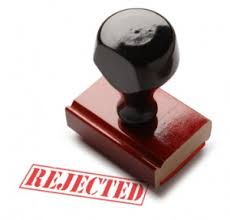What To Do If You’ve Been Rejected
As law school decisions roll out for early applicants, it’s inevitable that among those decisions a few rejection letters.
At a prestigious law school, such as Harvard Law, only about 13% get an acceptance letter. For the rest, it’s the dreaded rejection letter.
While rejection is never easy, Gabriel Kuris, founder of Top Law Coach and contributor at US News, recently discussed how applicants can handle a law school rejection letter and what they can do going forward.
READ THE DETAILS
Nearly every applicant wants to see the word “accepted” in their decision letter. But when that word isn’t in the letter, many will inevitably think they have been rejected.
Yet, experts say, it’s important to read the decision letter carefully.
“Especially this year, with so much uncertainty around the coronavirus pandemic, law schools are stingy about outright acceptances,” Kuris writes. “Early decision applicants may have their decisions deferred, placing them in the general admission pool. Even those who did not apply early may receive notice of a delayed decision. Applicants may be placed on a waitlist, in which case they may send letters of continued interest to stay under consideration. Applicants may even be encouraged to strengthen their application with a higher LSAT score or asked for additional information.”
ONE DECISION DOESN’T FIT ALL
Law school admissions officers seek students who will fit their institutions values, goals, and community.
So, while you may have gotten rejected from one law school, it doesn’t mean that another law school doesn’t see you fit. With that in mind, Kuris says, applicants shouldn’t jump to conclusions about other pending decisions based simply off of one rejection letter.
“Being rejected by one law school does not imply you will be rejected by others, even if they have similar or higher rankings,” she writes. “Neither law school admissions nor law school ranking is an exact science, and different schools put different weight on various elements of an applicant’s profile.”
WHAT SHOULD YOU DO?
If you’ve been rejected from your dream school, your first reaction may be to react by protesting the decision or asking for reevaluation.
But, Kuris says, that isn’t too wise.
“’Working the refs’ could come across as unprofessional,” she writes, “Rather, take the disappointment in stride and consider reapplying the following year.”
When reapplying, you’ll want to keep a few things in mind to improve your chances this time around.
“Find some way to make your application more competitive, such as a better LSAT score, new work experience or relevant volunteer activities,” Kuris writes. “At the very least, submit an updated resume, essays and perhaps even recommendation letters. It is likely worth writing a new personal statement from scratch on a different topic, but even a newly written essay on a similar topic would be better than making no changes.”
Sources: US News, Harvard Law


Questions about this article? Email us or leave a comment below.